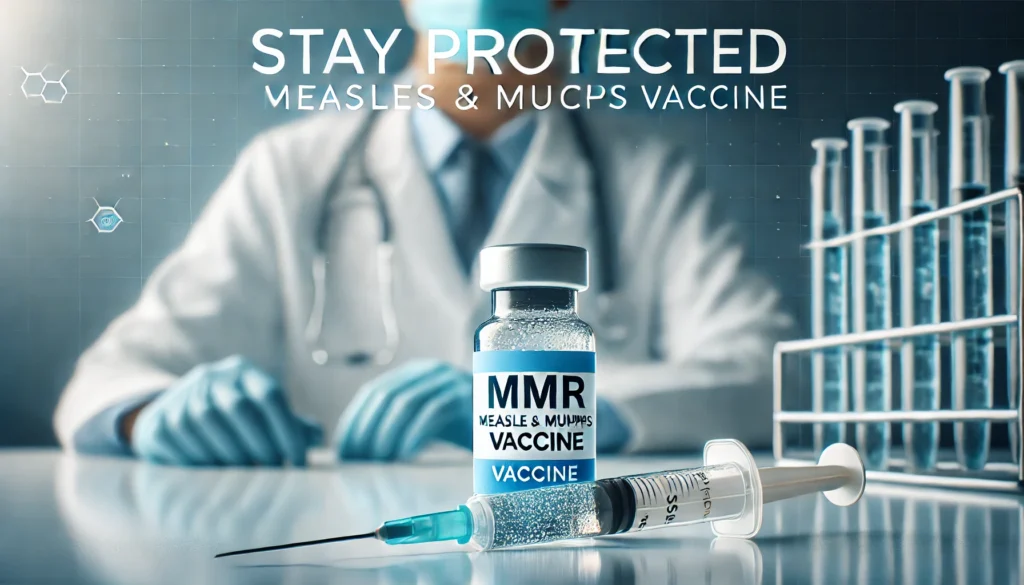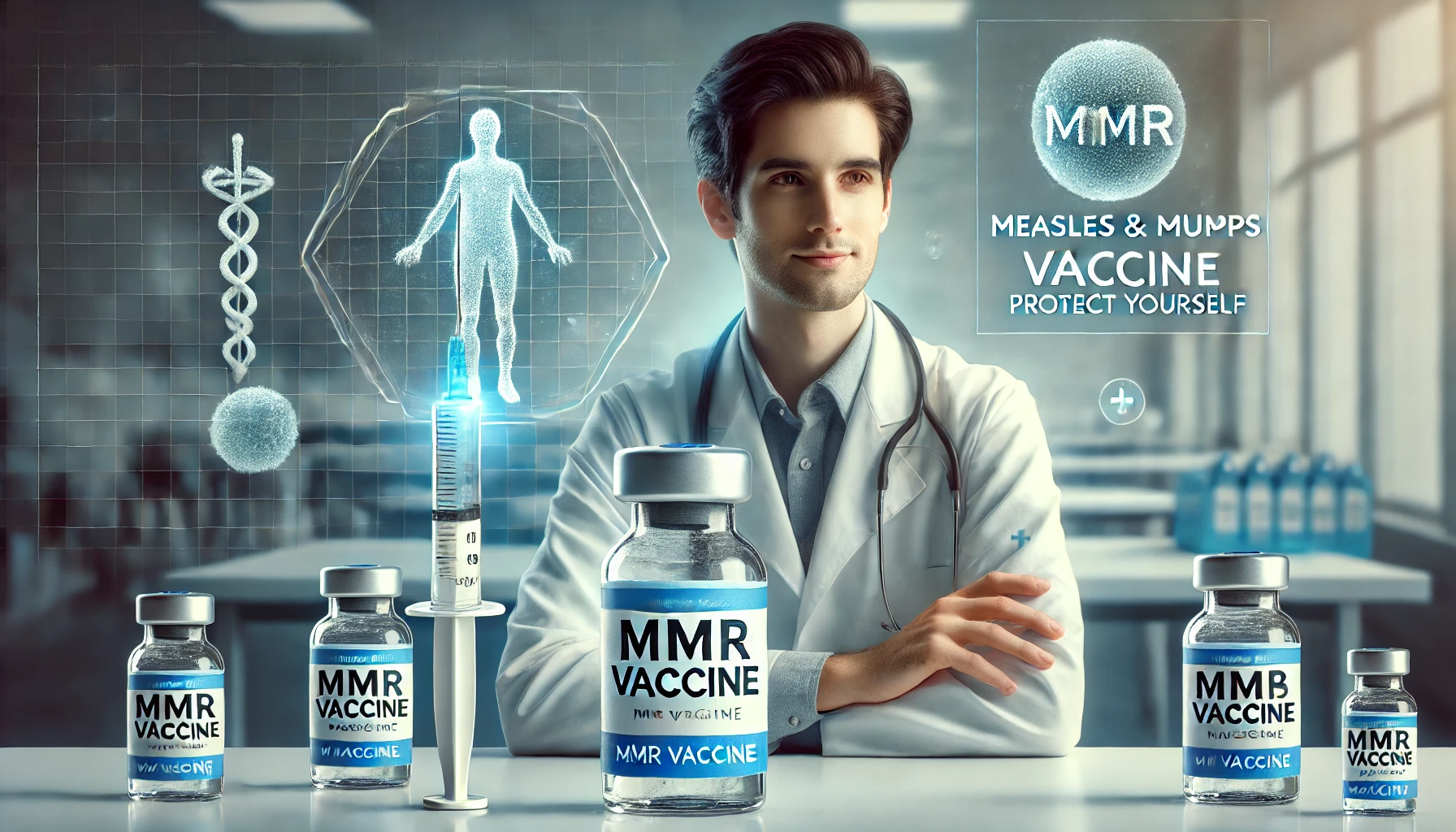
Introduction
What is the vaccine for measles and mumps? Measles and mumps are highly infectious viral diseases that spread rapidly and can result in severe health complications if not properly prevented. Ensuring timely vaccination and awareness is crucial to safeguarding individuals from their potentially serious effects. While these diseases were once widespread, the development of vaccines has significantly reduced their occurrence. Understanding what is the vaccine for measles and mumps? is essential for ensuring personal health and public safety.
Vaccines play a crucial role in disease prevention, and the Measles, Mumps, and Rubella (MMR) vaccine is the primary defense against these illnesses. This vaccine has saved millions of lives worldwide, making it one of the most successful medical advancements in history. But how does it work? Who should get vaccinated? And why is it important to maintain high vaccination rates? This comprehensive guide will answer all these questions and more.
Table of Contents
What is the MMR Vaccine?
The MMR vaccine is an immunization shot that protects against measles, mumps, and rubella. It is a live attenuated vaccine, meaning it contains weakened forms of the viruses that trigger an immune response without causing the diseases. The vaccine has been in use since the 1970s and has proven to be highly effective in preventing these illnesses.
How Does the MMR Vaccine Work?
- When injected, the vaccine introduces a weakened form of the viruses into the body.
- The immune system detects these weakened viruses and produces antibodies to fight them.
- These antibodies remain in the system, providing long-term immunity against measles, mumps, and rubella.
- If exposed to these viruses in the future, the immune system will recognize and destroy them before they can cause illness.
Effectiveness of the MMR Vaccine
The MMR vaccine is about 97% effective at preventing measles and 88% effective against mumps when both doses are received.
Why is the MMR Vaccine Important?
Vaccination is critical not only for individual protection but also for community immunity (herd immunity). When enough people are vaccinated, the spread of diseases slows, protecting those who cannot be vaccinated due to medical reasons.
Benefits of the MMR Vaccine
- Prevents Severe Illness – Measles and mumps can cause serious complications, including pneumonia, encephalitis, and even death.
- Reduces Outbreaks – High vaccination rates have drastically reduced the spread of these diseases.
- Long-Lasting Immunity – The MMR vaccine provides lifelong protection in most cases.
- Protects Vulnerable Populations – Infants, pregnant women, and immunocompromised individuals benefit from community-wide vaccination efforts.
Who Should Get the MMR Vaccine?
Recommended Schedule for Children
- First dose: Given at 12-15 months of age.
- Second dose: Given at 4-6 years of age.
Recommended Schedule for Adults
- Adults born after 1957 who have not been vaccinated should receive at least one dose.
- High-risk groups, including healthcare workers and international travelers, should ensure they are fully vaccinated.
Who Should Not Get the MMR Vaccine?
- Pregnant women (they should wait until after delivery).
- Individuals with severe allergies to vaccine components.
- People with weakened immune systems due to medical conditions or treatments.
Side Effects and Safety of the MMR Vaccine
The MMR vaccine is very safe and has been extensively studied. Most side effects are mild and temporary.
Common Side Effects
- Soreness at the injection site
- Mild fever
- Rash
- Temporary joint pain
Rare but Serious Side Effects
- Severe allergic reactions (extremely rare)
- Febrile seizures (very rare and not known to cause long-term harm)
The Impact of the MMR Vaccine Worldwide
The MMR vaccine has led to a dramatic decrease in measles and mumps cases globally. Before the vaccine, measles caused millions of deaths annually. Today, cases have dropped by over 80%, preventing millions of deaths and complications.
MMR Vaccine Success Stories
- United States: Measles was declared eliminated in 2000, though outbreaks still occur due to declining vaccination rates.
- Europe: Countries with high vaccine coverage have significantly reduced outbreaks.
- Developing Nations: Global vaccination efforts continue to save lives in regions where measles was once a leading cause of childhood death.
Frequently Asked Questions (FAQs)
1. How long does MMR vaccine immunity last?
The MMR vaccine provides lifelong immunity for most individuals after two doses.
2. Can the MMR vaccine cause autism?
No, extensive research has debunked any link between the MMR vaccine and autism.
3. What happens if I miss my MMR vaccine dose?
You should receive the missed dose as soon as possible. It is never too late to get vaccinated.
4. Can I get measles or mumps if I am vaccinated?
While no vaccine is 100% effective, the MMR vaccine provides strong protection. In rare cases, vaccinated individuals may still contract a mild form of the disease.
5. Is a booster needed for the MMR vaccine?
Two doses are sufficient for most people. However, certain individuals, like travelers, may need additional doses based on exposure risk.
6. Is the MMR vaccine mandatory?
Many countries require the MMR vaccine for school entry and international travel.
7. Can adults get the MMR vaccine?
Yes, adults who have not been vaccinated should receive at least one dose.
Conclusion
Understanding what is the vaccine for measles and mumps? is crucial for public health. The MMR vaccine has been a game-changer, saving millions of lives and preventing outbreaks. By getting vaccinated, you protect yourself and contribute to a healthier world.
If you haven’t been vaccinated yet, consult a healthcare provider today. Share this article with friends and family to spread awareness and encourage vaccination!
More details available at the Centers for Disease Control and Prevention (CDC)
Read Also:- Do you need both Hep A and B vaccine?
